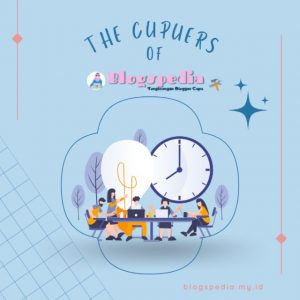 |
| Photo by MART PRODUCTION from Pexels |
In the fast-paced world of modern lifestyle, parents often feel worried about the future of their children. Will they find a job which not only provides them with adequate earnings but also a lifestyle that matches their passion and preferences? To achieve that, parents are pondering about what school should their children attend? What major should they choose?
People often forget though that formal education is not the only option we have. In a sharing session with Tami, a mother of seven children, we talked about the benefits of homeschooling and how to create a homeschooling program for your children.
What is homeschooling?
In school settings, students have to achieve a certain level of knowledge and skills under a specific time frame, be it a semester or an academic year. They are also evaluated by exams or assignments and then graded to distinguish which students pass or fail the requirements.
On the other hand, homeschooling is a lot more flexible. The schedule can be made to fit children’s personalities, interests, and learning styles. There is less pressure because they are not required to pass a certain level of knowledge in a specific timeline. They can take it as slow or as fast as they want to.
 |
| Photo by Julia M Cameron from Pexels |
Why choose homeschooling?
When she was still teaching Biology, Tami was a member of IGI (Ikatan Guru Indonesia). This forum created a mailing list where they could listen to the country’s education experts such as Ahmad Rizali, Dita Puti, Harry Santosa, and many others. Through this mailing list, Tami was able to gain more insights about the problems of education in Indonesia.
When her own husband opened a school, they sent their youngest child to kindergarten at the age of 3 years old. This decision proved to be fatal. He was traumatized and refused to go to school later on. Due to this, Tami and her husband let their youngest child be homeschooled.
It didn’t stop there. Their second eldest child also decided to stop his formal education after only one semester at SMK (vocational high school). This was followed by the fifth child (after graduating elementary school) and the sixth child (in 4th grade). Not pursuing formal education doesn’t mean these children have stopped learning though. While the second eldest is currently studying religion in Turkey, the 5th and 6th children are currently learning Al Qur’an in a pesantren. The youngest one is the only one still being homeschooled (as a high school student) by his mother.
How to begin a homeschooling program?
That’s why it is essential to first decide on the purpose of learning, the materials, the activities, and the methods of homeschooling. According to Tami, there are three ways homeschooling can be done, which are by following: 1) Academic track, 2) professional track, and 3) business track.
 |
| Photo by Julia M Cameron from Pexels |
If children want to pursue formal education or get a school diploma afterward then academic track is the most logical choice. It can be done through partnering with schools that facilitate homeschooling (there are several private schools who provide this service) or through SKB and PKB(community based learning centers). Later, children can take equivalent exams and receive a school diploma.
Professional track focuses more on gaining specific skills. Children can learn from the experts and then take competence tests. This track usually puts more emphasis on certificates of expertise and portfolios.
Lastly, there is the business track. This track allows children to join internship programs and start their own business.
Where to find resources for homeschooling?
Tami answered that there are a lot of resources available on the internet. She specifically mentioned Khan Academy, Duolingo, and online printables. You can even join homeschooling communities where you live. When she and her family lived in Balikpapan, they joined a homeschooling community there. Tami also recommended Charlotte Mason Indonesia that is spearheaded by Ellen Kristi (head of Perhimpunan Homeschooling Indonesia). These communities often hold seminars, workshops, and training about homeschooling.
Through these communities, children can also have a chance to interact with other homeschooled students. Homeschooling communities also give children the opportunity to connect with people from different age groups and diverse backgrounds.
In regards to children’s education, Tami said there are important things parents should remember. She pointed out that both homeschooling and formal education have their own pros and cons. That’s why it’s better to look at progress instead of results. Tami mentioned that she used to feel insecure and jealous when reading news and listening to friends’ stories about their children that are accepted into state college. Moreover, during family gatherings, her other family members’ often question why her children aren’t in school. Through these experiences though, Tami learns that she does not need to look for others’ achievements. The most important thing is to focus on your family’s greater goals and accept your children just as they are.














Choosing homeschooling program for our children, it's mean, parent should prepare very well, because it's something new for some parent
ReplyDeleteI was at the point of wanting to homeschool. But now I realize, I need school as a partner anyway. However, parents are still the main responsibility for the education of their children :)
ReplyDeleteAt the end, in the pandemic now that we've facing now. The children have to study by online. Which mean it's almost similar with homeschooling :) #maksa
ReplyDeleteEducation is responsibility of parents, Pandemic force education to the nature. Parents and School must unite to make the best education for children. I think online school is semi homeschooling hahaha, I'm so garing yea
ReplyDeleteMbak Nia, Terima kasih sharing ala-alaku ditulis di blog. Meski tak semudah itu, meski banyak episode air mata Homeschooling sudah jadi pilihan anak-anak. Dan apapun ke depan setelah ikhtiar ini biar Allah yang menuntunnya.
ReplyDeleteJujur aku pernah kepikiran buat home schooling nantinya pas punya anak. Tapi semakin ke sini balik lagi ke kondisi dan juga keinginan anak, mau metode apapun pokoknya berusaha memberikan yang berbaik
ReplyDeleteStill homeschooling for us is too hard, that's why we choose to send our children to school. But, thanks anyway for sharing Miss
ReplyDeleteBisa jadi review banget ini ya mbaa homeschooling ala Bu tami..
ReplyDeleteAku tertarik banget dengan program homeschooling. Pengen nerapin ke anak-anakku kelak.
ReplyDeleteHopefully one day I can provide the best education for my children
ReplyDelete